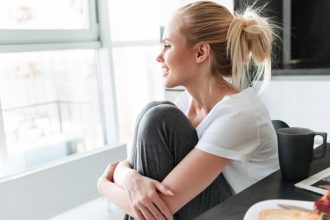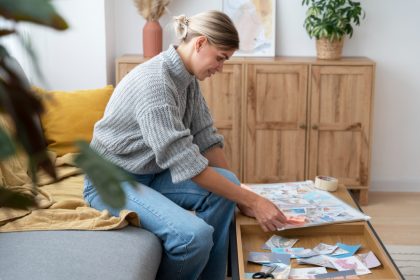Minimalism, often misinterpreted as simply owning fewer things, is more accurately described as a conscious practice of removing the unnecessary in order to make space for what truly nurtures well‑being. In a world that thrives on consumerism, constant stimulation, and the relentless pursuit of “more,” minimalism offers a quietly radical alternative: it invites us to step off the treadmill of accumulation and instead focus on balance, clarity, and intentional living.
One of the most profound psychological impacts of minimalism is the way it reshapes our mental landscape. Possessions, responsibilities, and digital clutter all carry a cognitive weight. The overflowing wardrobe, the endless lists of commitments, and the bombardment of notifications create a kind of low‑grade but persistent stress. Each item, task, or distraction pulls at our attention, demanding decisions and draining mental energy. This invisible load contributes to feelings of overwhelm, anxiety, and mental fatigue. By deliberately reducing excess, minimalism lowers the cognitive burden and creates mental space for calmness and clarity.
Decluttering isn’t just about neatness—it is a therapeutic process. Studies in environmental psychology suggest that cluttered spaces increase cortisol levels, which are directly tied to stress. Conversely, simplified and organized environments foster a sense of safety and control. When we let go of items or commitments that no longer serve us, we signal to ourselves that we are in charge of our environment rather than a prisoner to it. This restored sense of agency often leads to improved mood, reduced anxiety, and a renewed trust in one’s ability to make choices that align with personal values.
Moreover, minimalism extends beyond physical spaces into mental and emotional territories. The practice of being intentional about what media we consume, which relationships we maintain, and how we spend our energy directly influences emotional health. Releasing digital noise—whether through unsubscribing from unnecessary emails, muting endless notifications, or curating social media feeds—creates fewer interruptions and more opportunities for focused presence. Over time, this nurtures inner stillness and a heightened awareness of what truly supports well‑being.
Minimalism also challenges the deeply ingrained cultural narratives about worth and success. Society constantly tells us that status and happiness are found in possessing more—whether it’s a bigger house, the latest gadget, or a schedule packed with commitments. Yet the minimalist approach reframes worth as something rooted not in external accumulation but in lived experience and authenticity. This shift can be profoundly healing, as it replaces comparison and inadequacy with gratitude and sufficiency.
Thus, mental health is revealed not only as the result of biological or external forces but also as a consequence of the spaces we inhabit and the intentional choices we make. By simplifying, we don’t deprive ourselves—we align life more closely with what nurtures peace, connection, and focus. Minimalism, then, is less about subtraction and more about expansion: the expansion of mental space, emotional resilience, and the recognition that freedom often comes not from adding more, but from letting go.
Unlocking Daily Efficiency Through the Practice of Intentional Simplicity
Beyond its psychological benefits, minimalism carries a powerful impact on daily efficiency. Modern life is riddled with distractions—overflowing inboxes, multitasking demands, and environments designed more for stimulation than focus. Yet, efficiency is not achieved by increasing speed or intensity but by eliminating what doesn’t matter. Here, minimalism becomes a practical framework for creating flow in daily routines and conserving precious mental and physical energy.
A minimalist lifestyle naturally enhances time management. With fewer possessions comes less cleaning, organizing, and maintaining. Streamlined wardrobes shorten the time spent choosing outfits. A curated digital space—where unnecessary apps, documents, and files are removed—translates into less friction when seeking important information. The minutes saved compound, gradually creating hours reclaimed for more meaningful pursuits.
Decision fatigue is another critical area where minimalism proves effective. Each day, we make hundreds of small decisions, from what to wear to how to allocate time between tasks. When life is simplified, choices become clearer and quicker. For example, limiting options or adopting structured routines reduces hesitation and procrastination. Instead of wasting time navigating cluttered environments or unnecessary commitments, energy can be directed toward purposeful action.
The efficiency gained from minimalism also addresses procrastination. A cluttered desk or overly packed schedule can paralyze progress, serving as constant visual reminders of unfinished work or commitments. When spaces, tasks, and responsibilities are simplified, the mental barriers to action diminish. Workflows become smoother, and consistency in daily habits strengthens naturally.
Importantly, minimalism reframes productivity itself. In mainstream culture, productivity often means doing more in less time—pushing harder, juggling multitasks, extending hours. Minimalism redefines productivity as an outcome of focus and alignment. It is not about maximizing output but about ensuring actions resonate with core values. Under this lens, finishing one meaningful task with clarity and depth can feel more satisfying—and more sustainable—than crossing ten superficial tasks off a list.
This intentional approach also fosters greater alignment between efficiency and well‑being. Unlike methods that encourage operating at maximum capacity until burnout sets in, minimalism promotes balance. Space created by simplifying routines, curating commitments, and eliminating distractions doesn’t just free time—it restores energy. With greater reserves of attention and focus, daily living feels less like constant catch‑up and more like flowing steadily in rhythm with personal priorities.
Ultimately, efficiency gained through minimalism is not about stripping life bare or rejecting ambition. Rather, it’s about designing a lifestyle that harmonizes productivity with peace of mind. In removing the trivial and the excessive, we uncover the essential: time to think, space to create, energy to connect, and clarity to live more fully in the present.
Minimalism is not a rejection of life’s richness; it is an embrace of what matters most. By reshaping the mental landscape, it alleviates the hidden weight of clutter and restores calmness, focus, and emotional resilience. By unlocking daily efficiency, it reduces wasted time, streamlines decision‑making, and redefines productivity in a way that sustains balance and health.
In a world that encourages busyness and excess, minimalism offers a quiet but transformative shift. It is both a philosophy and a practice: to live with intention, to curate spaces that nourish well‑being, and to align action with values. The result is not scarcity but sufficiency, not deprivation but a deeper connection with what truly enriches life.
In simplifying, we do not lose—we finally make room to live with clarity, meaning, and purpose.















